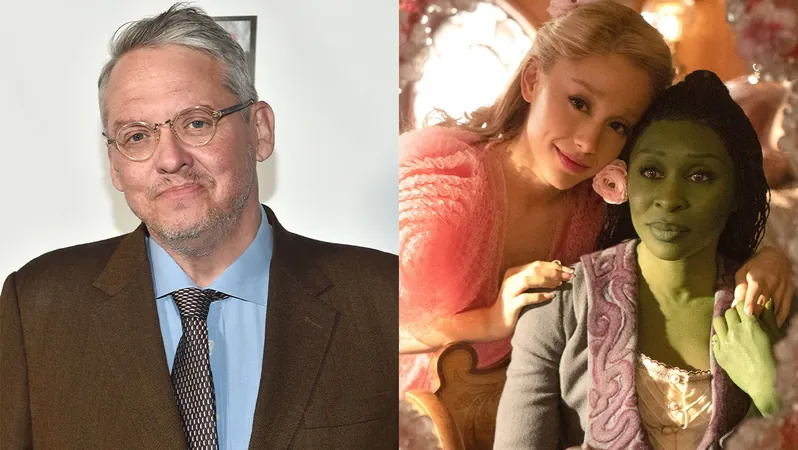
Adam McKay Warns ‘Wicked’ Could Face a Ban in Just 3-5 Years Due to Its “Radical” Themes
2024-12-26
Author: Ming
Introduction
In a bold statement, acclaimed director Adam McKay recently voiced concerns about the future reception of "Wicked," the cinematic adaptation of the beloved musical, directed by Jon M. Chu. McKay believes that in the coming years, the film may face significant backlash, possibly leading to bans due to its controversial themes.
McKay's Perspective on 'Wicked'
Posting on X (formerly Twitter), McKay lauded the first part of "Wicked" as one of the most audacious big-studio films ever made. “On a pure storytelling level, Wicked Part 1 is right up there as one of the most radical big studio Hollywood movies ever made,” he observed. He underscored its thematic exploration of radicalization amid struggles against careerism, fascism, and propaganda, emphasizing how it resonates especially at a time when American society is perceived as increasingly right-wing.
Comparisons to Classic Films
McKay contrasted "Wicked" with a host of classic films he deems similarly radical, including "The Sound of Music," "Bridge on the River Kwai," and "The Hunger Games." Notably, he acknowledged that while the source material has existed for years, the film's release is potently timed with contemporary social issues.
Public Reaction and Discussion
Despite clarifying he was not conducting a formal review, McKay's commentary sparked engaging discussions among viewers, many of whom expressed surprise regarding the deeper messages of the film. One user shared they would catch the film on streaming, unaware of its more political narrative. McKay replied, “I think you’ll be shocked,” affirming that if societal trends continue, the film might indeed face a ban in a few years.
Plot Overview
The plot centers around Elphaba, portrayed by Cynthia Erivo, who is ostracized for her green skin and navigates complex friendships and hardships, particularly with Glinda, played by Ariana Grande. Their journey takes a significant turn following an encounter with the Wizard of Oz (Jeff Goldblum), which tests their bond and raises questions about power dynamics in their world.
Concerns About Censorship
In response to a follower who downplayed the likelihood of a widespread ban, McKay reiterated his concerns. He pointed to the increasing politicization of arts and media, remarking, “Things are changing fast,” and hinted at alarming governmental trends towards censorship.
Conclusion
As "Wicked" opens to audiences, McKay’s warnings echo a growing unease regarding artistic expression and its potential consequences in a polarized political landscape. With discussions about media censorship gaining momentum, the future of creative work, especially ones with radical themes like "Wicked," could be precarious. Keep your eyes on this story as it unfolds!

 Brasil (PT)
Brasil (PT)
 Canada (EN)
Canada (EN)
 Chile (ES)
Chile (ES)
 España (ES)
España (ES)
 France (FR)
France (FR)
 Hong Kong (EN)
Hong Kong (EN)
 Italia (IT)
Italia (IT)
 日本 (JA)
日本 (JA)
 Magyarország (HU)
Magyarország (HU)
 Norge (NO)
Norge (NO)
 Polska (PL)
Polska (PL)
 Schweiz (DE)
Schweiz (DE)
 Singapore (EN)
Singapore (EN)
 Sverige (SV)
Sverige (SV)
 Suomi (FI)
Suomi (FI)
 Türkiye (TR)
Türkiye (TR)